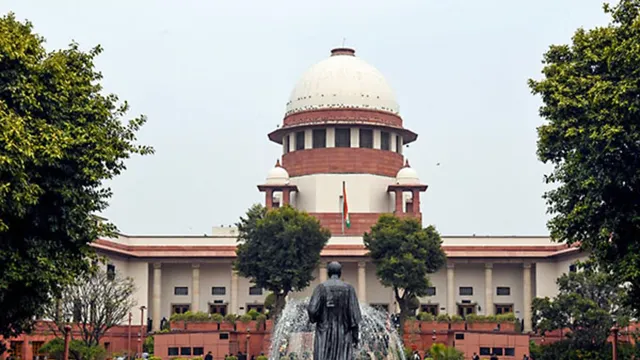- By Priyanka Koul
- Mon, 15 Sep 2025 01:36 PM (IST)
- Source:JND
The Supreme Court on Monday refused to extend the law on sexual harassment at workplaces to political parties, stating that such entities cannot be classified as “workplaces” and that their members do not qualify as “employees.”
A bench headed by Chief Justice of India Bhushan R Gavai, along with Justices K Vinod Chandran and NV Anjaria, questioned the very premise of the petition. “How do you declare a political party a workplace? Is there any employment there? When you join a political party, you do not get a job. There is no payment for your work,” the bench remarked, adding that taking such a broad view could open a “Pandora’s box.”
The court was hearing a special leave petition filed by advocate Yogamaya MG, through advocate-on-record Sriram P, challenging a 2022 Kerala High Court decision. That ruling held that political parties are not obligated to form Internal Complaints Committees (ICCs) under the Sexual Harassment of Women at Workplace (Prevention, Prohibition and Redressal) Act, 2013 also known as the POSH Act because their members do not share a conventional employer-employee relationship.
ALSO READ: Waqf Row: Supreme Court Refuses To Stay Entire Act, Halts Some Provisions
Senior advocate Shobha Gupta, representing the petitioner, countered that the POSH Act draws no line between public and private entities and argued that excluding political parties leaves women working in politics without protection. “The arbitrary denial of these protections defeats the very object of the law,” the petition stated.
Gupta insisted that volunteers, campaigners, interns, and grassroots workers in political spaces operate in vulnerable environments and deserve the same protections as anyone else.
ALSO READ: 'Treated Worse Than Prisons': SC Issues Directions To Ensure Better Conditions In Beggars' Homes
However, the bench remained firm in its stance, emphasizing that political party membership does not imply formal employment. It ultimately declined to interfere with the Kerala High Court's decision, effectively upholding it.
The petition also argued that the exclusion of political parties from the POSH Act's purview was discriminatory and in violation of fundamental rights enshrined in Articles 14, 15, 19, and 21 of the Constitution.
The plea named several national and regional political parties including BJP, Congress, AAP, CPI(M), CPI, NCP, AITC, BSP, and NPP as respondents, in addition to the Union government and the Election Commission of India.

